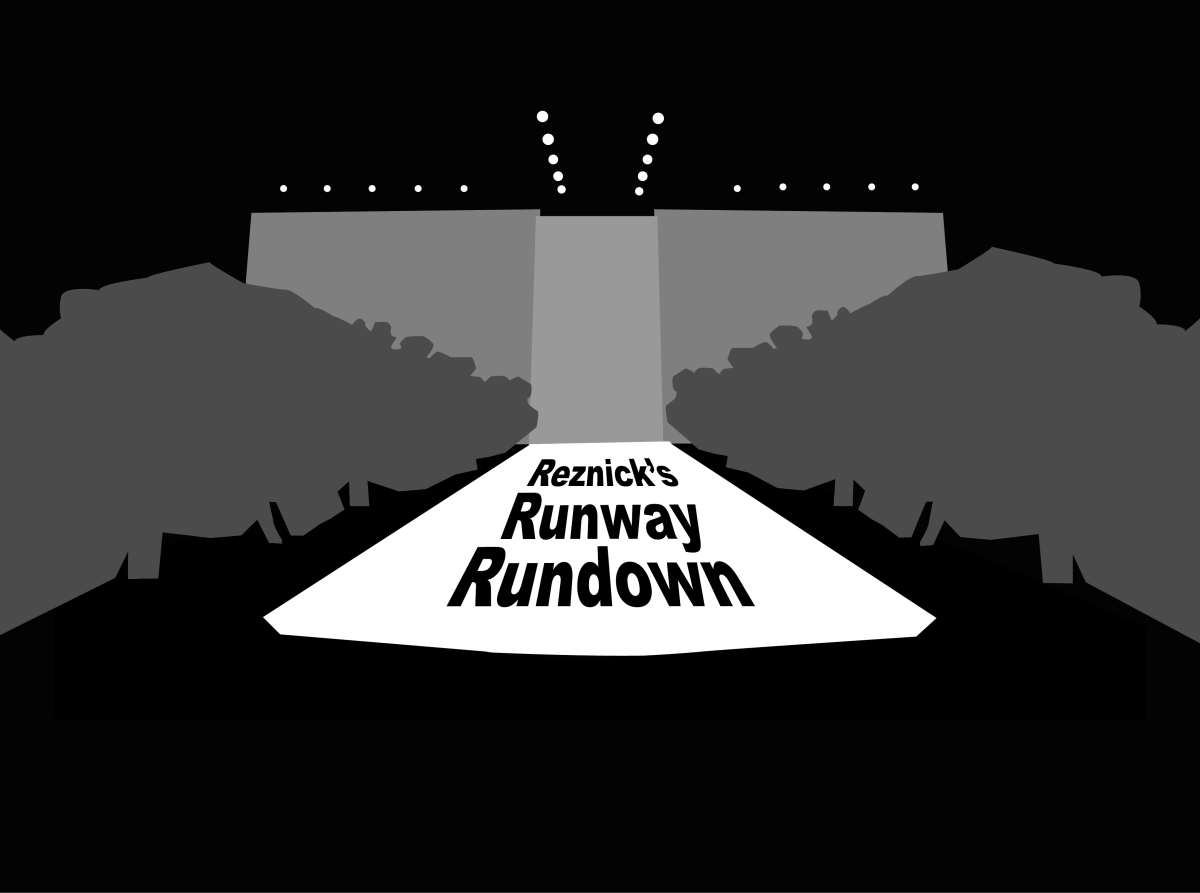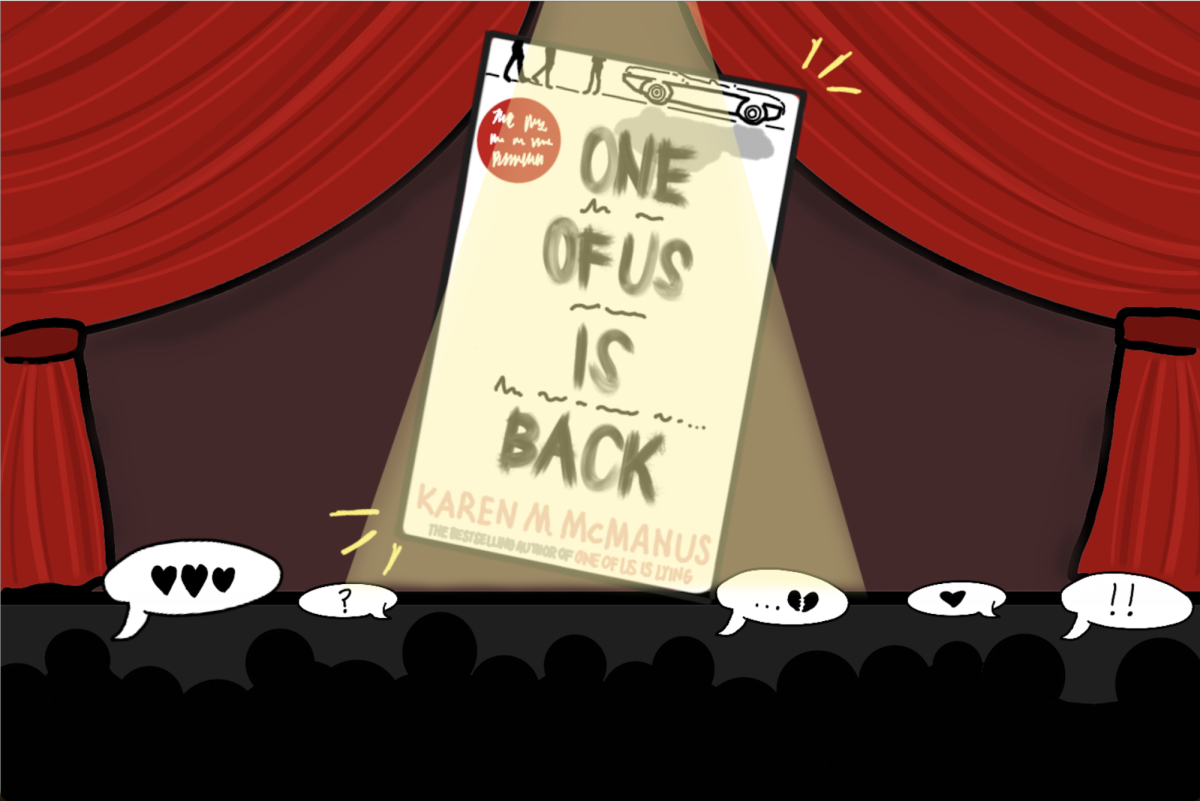It’s 1 a.m., everyone in his house has gone to bed, but he is commanding hundreds of Roman legionnaires. At his laptop that is, mindful yet undisturbed by the fact that seven hours from now he will be at One Waverley Place. But, “whatever,” he is accustomed to a small amount of sleep.
Christopher Vann (’15) admits he casually indulges in reading or video games, particularly novel fiction and single-player historical strategy games like Total War, but when it becomes detrimental in any way, he knows how to stop. He, in short, procrastinates excessively: When he finds time – sometimes through, procrastination –, whether it be 30 minutes or six hours, he will read or he will play.
Addicted? Not particularly so. Vann said, “I wouldn’t say I’m addicted because I can stop when I want to.” Although he said, “there are points where I wish I’d [say], ‘No, sleep!’” His ability to stop at will, and a consequent independence from what he does binge on, makes independent from his habit. Yes, he will spend hours playing video games instead of sleeping, but when he needs to stop, he will stop.
“It’s never had a physical negative effect on me, but I’ll procrastinate by playing hours or reading way too much,” he said. The general scheduling of his procrastination comes with excessive reading followed by completion of his assignments and homework, which sometimes affords him time to play video games. Never, he stresses, does he forgo sociability, work, or food – as he places them in order of ascending importance – to play or read.
Vann’s casual binging, in fact, is a welcome break from a hefty senior workload. “It’s an escape from work, but always in reason,” he said. Though he admits sometimes, with a hyperbolical laugh, that a book can turn half of an hour into four.
Mahmoud Marouf (’17) does his homework every night, goes out on the weekend to see friends, and never compromises daily obligations, such as meals and hygiene. However, when any time can be found, even at the expense of sleep, he will fill it with a few, or many, online matches of FIFA15 – the latest installment in EA Games soccer video game series.
During the week, Marouf controls himself and prioritizes homework, playing up to 30 minutes a day – once again, the lack of detriment accompanying his excessive hobby marks it as a hobby rather than an addiction. However, “on the weekends, sometimes it might get out of hand, if friends come over I’ll play two hours with them, then I’ll go out for dinner, come back and play for another two to three hours,” Marouf said.
When alone, this also happens. “I’d spend four hours on a Saturday night [playing FIFA],” Marouf said, and then, looking at the clock in the dead of night, “I ask myself, ‘what did I just do?’”
But Marouf points out that he doesn’t feel a particular addiction to the game, and that it is just filling a void. He has spare time, and he wants a hobby: “I get to relax and play something that I like with FIFA. If I didn’t have that, I would have to find another game.”
Casual binging, synonymous with procrastination, is a common occurrence for most teenagers – almost universally. But however much time it might devour from an individual, the condition that it is not an addiction marks it from more harmful irregularities, such as Binge Eating Disorder (BED).
Binge eating, as the medical label suggests, is a formal disorder associated with individuals who physically cannot stop themselves from eating. Overindulgence, with food in this case, creates a chemical response in the body: Each time a binge eater hereafter eats, the brain will release dopamine and opioids that make eating physically addictive.
Video games, TV shows, eating, and many other hobbies turn from semi-addictive recreations to full-fledged dependences once consumed enough. This cerebral nature, as psychology websites like psychologytoday.com point out, create the recreation that can enthrall individuals for hours on end. Whatever a person enjoys doing, in short, could easily turn into a physical addiction.
Amin Ojjeh (’16) considers himself to be a excessive eater. “I love food, I eat all the time, It’s like a hobby of mine,” he said. Ojjeh not only eats when he is hungry, but when he is bored. Ojjeh sees food as a source of distraction when he is working. “I’m usually up until midnight because of work so I sometimes take breaks and go downstairs to the kitchen to find some food and eat a little bit and then continue working,” he said.
He is not always conscious of the amount of food he is eating.“If I’m eating for the fun of eating, I eat a lot and don’t realize it,” he said. However, “I realize how much I ate and think ‘Oh my God, I ate so much.’” Though he loves food and is constantly eating, he thinks of this as an unharmful hobby that he can stop if he tried to, a casual binge.
However, it wasn’t always as such, when he was younger, he had the same eating habits yet never exercised. A few years ago he changed the nature of his habit by exercising. “[How much I ate] was part of the reason which got me to exercise excessively, which balances out with my eating habits,” he said.
Extreme consumption also extends to activities that are more addictive, like television watching.
TV series often become the object of extreme procrastination and casual binging, due to their seemingly endless nature. One episode slowly morphs into the next and into the next until what a rational conscious promised would be only 30 minutes turns into three hours.
For Jackie Hess (’16), this occurred over the space of a week, when she completed the entirety of the TV show Friday Night Lights, five seasons of over 60 hours of running time, in the space of seven days.
“I tell myself ‘I’m just going to watch another 40 minutes’… But then when I’m done, I ask myself ‘where did [the] time go?’” Hess said. This is often a result of what differentiates these binging lures from other forms of recreations: Where video games like Vann’s promise endless campaigns, the TV shows Hess and millions of other teenagers enjoy employ cliffhangers to keep viewers virtually hooked.
Perhaps indicative of an addiction, it in fact isn’t, as Hess confirms she can stop herself when it matters – when sleep, work, or whatever other task becomes incumbent.
However, Hess acknowledges that she often succumbs to the temptation of TV shows. “I binge watch TV a lot whenever there’s a break and I always catch up on seasons of TV shows,” she said.
Hess believes that excessive consumption of TV shows is not a fundamental issue at ASL, though “a lot of people at ASL do it,” especially when spare time is handy, such as weekends and breaks. She credits the number of extreme TV consumers to the advent of streaming websites such as Netflix.
Everyone has their form of procrastination, ranging from excessive usage of websites like Reddit to the incessant consumption of food. For Temi Otedola (’15), however, this usually comes in the form of online shopping. “I could online shop for hours,” she said.
Otedola’s online shopping habits, though, are not a consumer tendency as much as a form of casual binging. “I’m not even shopping, I’m just looking at stuff,” she said.
Her self-proclaimed indecisiveness coupled with procrastination then consume hours from her until she finds what she wants, which, ironically, “I’ll look at a million other pieces of clothes and finally it’s the first one I saw that I buy.”
For Otedola, online shopping is a form of escape, retail therapy, as she puts it. “It’s just mindless. If I’m really stressed, it just relaxes me,” she said.
Procrastination can often be a beneficial thing, a time where students can pause and take a breath between assignments. But often that breath can stretch for many hours, eventually consuming time required for assignments. Extreme procrastination is just that: When individuals and students indulge in something to the extreme, spending hours on a book, evenings on video games, or days shopping.
It can be detrimental, but as Otedola points out, “I could be doing more important things, like work, but apart from that, it’s fine as long as you don’t go overboard!” The question remains as to what is overboard.







